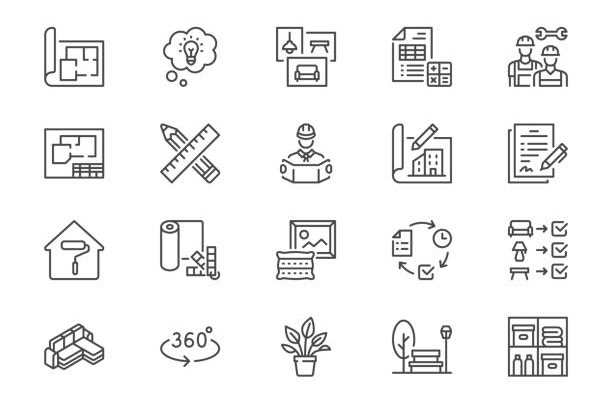We know a few things that increase the value of rental properties hugely. One of those few things is routine maintenance and inspection. we can not stress enough the importance of regular property maintenance and property inspections.
Many homeowners find it hard to understand the importance of property maintenance. But when they do, they appreciate us for helping them understand this. As a property owner or investor, making sure that your investment yields its maximum is crucial. Rental Inspection and maintenance play a crucial role in keeping the value of your property.
It also lowers potential risks and ensures a peaceful living environment.
In this piece, we will attempt to explore the importance of regular property inspection and maintenance. We will highlight the gains and provide you with helpful insights. But before that, let's differentiate between property inspection and property maintenance.
(Rental Property KPIs and Why you Must Track Them)
What is Property Inspection and Property Maintenance?
These two terms are used interchangeably, but they are not the same. Property inspection is a means of evaluating a property's condition. The goal is to identify and address any issue that can become a problem.
Rental Property Maintenance is an ongoing upkeep or repair that makes sure the property does not lose its value. The goal is to prevent any decline or correct it. We have two main types of maintenance:
Types of Property Maintenance
- Preventive Maintenance
- Corrective Maintenance
Preventive Maintenance
In preventive maintenance, we carry out routine maintenance on a home to prevent breakdown. This kind of maintenance does not always repair things. It helps prevent the need for repairs. Some simple examples of preventive maintenance include repainting, sanitation, servicing HVAC components, and water heaters.
Corrective Maintenance (Repair)
In corrective maintenance, you fix or replace parts and systems after they have failed. Preventive maintenance aims to prevent problems before they occur. While reactive maintenance deals with issues as they arise. It ensures that simple problems don't escalate further.
Some examples of corrective maintenance include fixing leaks, cracks, and component failure.
(Complete Guide to Understanding Commercial Property)
10 Importance of Regular Property Maintenance and Inspections
Let's discuss the 10 importance of property maintenance and inspection. This is our attempt to help you see why you should give these things more attention.
1. Enhancing Property Value
One major importance of regular property maintenance and inspections is that it improves property value. It helps in enhancing the value of your single-family investment. When you keep your property in good shape, you attract tenants or buyers who love value.
You display pride of ownership by caring for your property. You reassure tenants or buyers that they are investing in a property that is worth their while. (Sustainable and Eco-Friendly Real Estate)
2. Minimize Repair Costs
When you neglect routine care, small issues will turn into huge problems in no time. By conducting routine inspections, you can pinpoint and address minor maintenance needs. You will fix this before they escalate into costly repairs.
Proactive maintenance saves you money in the long run. It also helps you avoid sudden financial burdens. Regular property inspection and maintenance make sure repair costs stay low. (Best Practices for Security Deposits in Alabama)
3. Ensures Tenant Satisfaction
One vital task for you as a house owner is to maintain a good relationship with your tenants. Regular property maintenance shows your commitment to their comfort. When tenants know that their comfort is crucial to their landlord, they become more likely to renew their lease. They will also go as far as recommending your property.
Satisfied tenants contribute to a stable rental income and minimize vacancy costs. This in turn will yield to long-term lease agreement. It can also reduce marketing costs, and bring endorsement. (10 Strategies to Encourage Your Tenants to Renew Their Rent and Stay Longer)
4. Comply with Legal Requirements
Regular property maintenance and inspections are mandatory by most local laws and regulations. So, as a law-abiding landlord or property owner, this is a must for you. When you fail to meet these conditions, it can result in penalties or legal issues.
When you carry out regular inspections, you comply with safety and standards. You will also maintain a safe living condition for your tenants. (15 Legal Considerations For Property Managers)
5. Identify Potential Hazards
Regular inspections give you the chance to find and address potential hazards on your property. From electrical issues to structural weaknesses. Proactive maintenance helps prevent accidents and ensures the safety of your tenants. Prioritize the well-being of your tenants and address any potential hazards promptly.
Furthermore, you will be accountable for any accident that occurs as a result of your neglect. Property inspection and maintenance are important so you don't put your tenants in danger. (Why Should You Outsource Your Property Management)
6. Extending the Lifespan of Property Components
Property components such as HVAC systems, plumbing, and roofing need regular maintenance to prolong their lifespan. By planning routine inspections and addressing maintenance needs promptly, you can extend their lifespan. This will save you money on premature replacements and also reduce the chance of sudden breakdowns.
This means that a well-coordinated inspection and maintenance can increase the lifespan of your property component. (How Property Managers Maximize Returns for Investors)
7. Preventing Damage from Neglected Maintenance
Failure to address routine maintenance tasks can result in the escalation of minor issues into substantial damage. For instance, a small leak left unaddressed can result in water damage, mold growth, or structural wear. Regular inspections and maintenance enable you to catch these issues early and prevent further damage to your property.
(How Often Should a Landlord Inspect Rental Property)
8. Preserving Curb Appeal
The exterior appearance of your property plays a crucial role in attracting tenants or buyers. Regular maintenance ensures that your property maintains its curb appeal. This makes for a positive first impression.
Well-manicured lawns, clean exteriors, and maintained landscaping contribute to the overall appeal. It also increases the desire for your property. (Tips for Improving Your Rental Property's Curb Appeal)
9. Planning for Future Renovations or Upgrades
(14 renovations and upgrades that can increase the value of your rental property)
Regular property maintenance allows you to assess the condition of your property. With this in mind, you can plan for future renovations or upgrades. By identifying areas that require improvement, you can budget accordingly. You can make informed decisions about enhancing your property's value and functionality.
Strategic upgrades can attract higher-paying tenants or increase the resale value of your investment. Always look forward to it as a property owner or investor.
10. Increase in Rent earnings
A well-maintained house can yield more in rent. You can confidently tell your tenants of a fair increase. They will understand because you have done a good maintenance job and they have seen it. (Rent Collection Best Practices)
Conclusion
In conclusion, regular property maintenance and inspections are vital for the longevity of your single-family investment. They enhance property value, minimize repair costs, ensure tenant satisfaction, and contribute to legal compliance.
Remember, maintaining the quality of your property goes hand in hand with being a responsible property owner or investor. Dedicating time and resources to regular property maintenance and inspections shows your commitment. It shows your commitment to providing a safe and valuable living space for your clients.
Frequently Asked Questions (FAQs) One Property Maintenance and Inspection
Do Property Management Companies Carry Out Commercial Property Maintenance?
Yes, property management companies often carry out commercial property maintenance as part of their services. Commercial property maintenance involves the upkeep, repair, and management of commercial buildings. This ensures the building remains in top condition and complies with safety regulations. If you are looking for a property management company that is also proficient in commercial property maintenance, then contact Stutts Properties.
Stutts Properties has a commercial property maintenance policy that makes sure our clients' properties are in top gear and remain at their highest returning value. Our strategy ensures saves time and money, ensures consistent property care, meets legal maintenance obligations, improves tenant satisfaction, and preserves property value.
My Landlord Is Doing Inspections Every Other Week – Is That Legal?
If your landlord is doing an inspection every other week, then I think that might be a problem. Landlords have the right to inspect their property to ensure it’s well-maintained, but frequent inspections could violate your right to privacy. Most states, including Alabama, require landlords to give reasonable notice before entering a rental unit. Typically 24-48 hours notice is required unless it's an emergency. Whether this is legal or not now depends on your lease agreement. Read this article on How Often Should a Landlord Inspect Rental Property for clarity.
What Does a Home Inspector Do?
A home inspector is a licensed professional who evaluates the condition of a property before it's sold, rented, or renovated. Their job is to provide an unbiased assessment of the home's safety, functionality, and overall condition.
How Can I Find Home Inspectors Near Me
Finding a reliable home inspector near you is important for checking a property's condition before renting, buying, or during routine inspections. You can easily find one from Google Search or through association websites such as ASHI (American Society of Home Inspectors) and InterNACHI (International Association of Certified Home Inspectors). You can also contact local property management companies for recommendations.
Stutts property management company offers free inspection for customers looking for homes to rent or property to buy. We also carry out routine inspections on behalf of our clients.
Also Read;
What You Need to Know About Breaking a Lease
Why You Should Consider Investing in Florence Alabama
Property Marketing Tips to Attract Tenants
Rent Recovery Solutions


